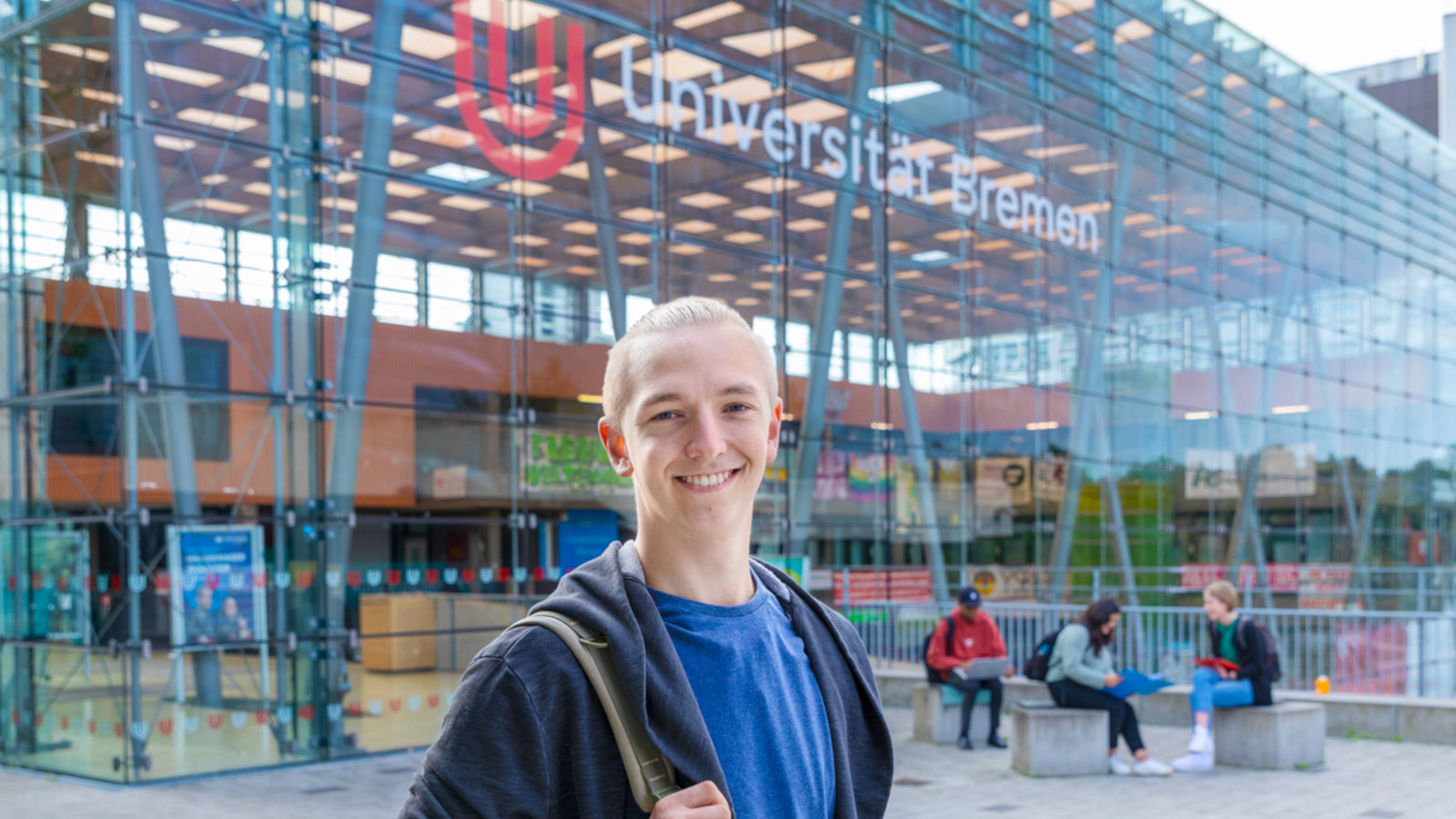
© Matej Meza
“Sustainability Is a Way of Life”
Student Michel Thorin Joswig talks about his commitment at the university
Making university life more sustainable – this is one of student Michel Thorin Joswig’s major concerns. He is involved in the “Bremen Goes Sustainable” project, in which students can get active. In this interview, he explains why he does it and what the students have already achieved.
Michel, you are currently pursuing a master’s degree in ecology and are about to write your final thesis. Have you always been interested in biodiversity and sustainability?
Not really. I have been interested in biology for a long time. It was one of my favorite subjects at school. I always liked to be outdoors and wanted to know how all things in nature are interconnected, how habitats and ecosystems are linked. However, the issue of sustainability only became relevant to me during my time at university, when I attended seminars on the subject. I also was a member of the StugA (student body) for a long time, where we always asked ourselves how we could act more sustainably. For instance, do we still have to use plastic cups, or is there an alternative? I am currently working on the BreGoS (Bremen Goes Sustainable) project, a collaboration of all of Bremen’s universities.
How do Bremen’s universities are going to promote sustainability?
Above all, we want to implement specific measures and not just talking about and discussing things. Another important aspect for us is that everyone can get involved, from students to professors and staff.
Here at the University of Bremen, we coordinate the cooperation between Bremen’s universities, but we also implement our own measures. One example is our ongoing work to support biodiversity on the university’s green spaces. If the meadows are mowed less frequently, more plants can grow there on which insects depend. These in turn are food sources for various bird species, for example. We are conducting research to determine how the diversity of flora and fauna differs between mowed and unmowed areas.
How can students get involved with the BreGoS project?
One way is the “Campus Goes Biodiverse” real laboratory. The lab is open to all students – regardless of their degree subject or how long they have been studying. All that matters is that you want to make concrete changes at the university. For example, some students had the idea of installing nesting aids for swifts on campus. These birds do occur in the region, but are rarely seen on campus. We are trying to change that. Other students are about to produce the first episode of a podcast that deals specifically with the topic of biodiversity. We ourselves are constantly amazed at the different and wonderful ideas the students develop. That is what makes Campus Goes Biodiverse so exciting: that everyone looks at the same issue from different perspectives.
Can students earn credits for their involvement toward their degree?
Yes, they can! Depending on how extensive their projects are, students can earn between three and nine credit points in the field of General Studies. It is also important that the students do not work on their projects all by themselves, but that we from BreGoS provide them with advice and support. For example, when it came to finding suitable locations for the nesting boxes on campus or identifying areas for further projects, we liaised with various administrative departments and building management.
Can students earn credits for their involvement toward their degree?
Yes, they can! Depending on how extensive their projects are, students can earn between three and nine credit points in the field of General Studies. It is also important that the students do not work on their projects all by themselves, but that we from BreGoS provide them with advice and support. For example, when it came to finding suitable locations for the nesting boxes on campus or identifying areas for further projects, we liaised with various administrative departments and building management.
We have been experiencing increasingly dry summers in recent years. That is also noticeable on campus. How do you feel when you see the environment in such a state?
Of course, sometimes that makes me sad, too. But all the more I want to contribute to making a difference. When I walk across campus, I see dry meadows everywhere. Yet I notice that there is much more buzzing and humming in the fields that have not been mowed than in the others. This shows me time and again: What we are doing is successful. And that motivates me to keep going.